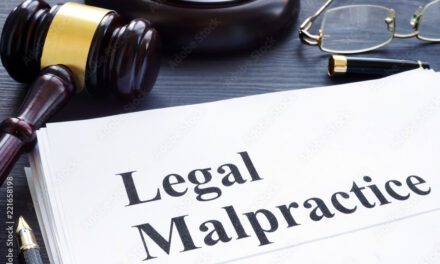Some of the Blogs will contain supplementary additions. Those added after January 1, 2015 will probably be dated, barring oversight. Readers may note that many of the cites are Texas cases. This resulted from the history of the contents.
These disquisitions are revisions something I wrote at least several years ago. First editions of these essays were begun some time ago. Somehow their print got locked in, to some degree, so some parts of the essays were thrown out of kilter and can’t be made right today. This is particularly true along the left margins of some of the essays.
HUMANELY: INSIST ON IT.
employ support staff as well as lawyers.
The support staff may include secretaries, paralegals, filing clerks,
runners, copyroom personnel, computer technicians, office managers,
bookkeepers, demonstrative evidence specialists, graphic artists,
photographers, investigators, translators, nurses, physicians, scientists,
engineers, marketing specialists, and others.
Of course, not every law office has every sort of staff employee. These people have conflicts that may cause
the disqualification of a law firm.
These people may also make mistakes and can trigger malpractice cases.
formulated as it is for several reasons.
First, mentorship includes supervision,69 but it
includes a good deal more. Second,
junior lawyers can mentor each other, as can senior lawyers, but they do not
supervise one another. Third, very
senior lawyers should insist that more junior lawyers mentor those at the
bottom. Thus, mentorship should become
an institutional dictate–part of the firm culture. Fourth, junior associates should insist upon
receiving mentorship. In fact, junior
associates interviewing law firms should try to figure out how much mentorship
is available. It makes no sense to be an
apprentice in a place no one’s willing to be a master.
observer has stated recently that many lawyers are lousy at mentorship,
supervision, and instruction. Thane
Josef Messinger, The Young Lawyer’s
Jungle Book (2d Ed. 2000) “If you feel lost and unsure of your legal
desires, then find a firm whose partners take mentoring seriously. Ironically, bigger firms are usually better
at this–because they have to be. If you
like smaller firms (. . .and smaller firms are, generally, nicer
places to practice) then you should understand that, more likely than not, a
far greater part of your learning–and self-teaching–responsibility will fall
upon your shoulders. If you’re
not self-directed, then go with a bigger firm, at least until your training
wheels fall off.” Id. at 7. (Messinger’s jolly book is perfectly orthodox
in a relaxed sort of way, but it is eminently readable. The underlying message is, “Lighten up on
yourself.”)
Given the purposes and context in which the early versions of the essays were written, many of the legal rules explicitly numbered are from The Texas Rules that were built upon the ABA Model Rules.
Lawyers shall perform their labors competently.
Lawyers shall not neglect their client’s work.
law firm must supervise junior lawyers (same for corporate and government
analogs).
accept supervision, but they are still responsible under all applicable rules.
supervise non-lawyer assistants.
associates to significant hearings alone.
One wonders if wizened judges listen carefully to quite young
people. Reilly v. Natwest Markets
Group, Inc., 181 F.3d 253 (2nd Cir. 1999).
Might this not even be a form of malpractice?
the paralegals they hire. Paralegals
(a/k/a legal assistants) who have worked on a case are conclusively presumed to
have received confidences and secrets while working upon that case. Phoenix Founders, Inc. v. Marshall,
887 S.W.2d 831 (Tex. 1994) (while presumption exists, it is rebuttable). See Grant v. 13th Court of Appeals,
888 S.W.2d 466 (Tex. 1994) (legal secretary).
It is not, however, conclusively presumed that the legal assistant
shares any of the secret information he presumptively has with his new
employer. There is such a presumption,
but it is a rebuttable one. In re
American Home Products Corporation, 985 S.W.2d 68 (Tex. 1999). (Freelance legal assistant caused
disqualification of counsel for plaintiffs.)
who supervise them. Staff errors can get
lawyers into trouble and cause them fines.
Cuyos v. Texas Mobil Health, Inc., 10 F.Supp.2d. 750 (S.D. Tex.
1998). Here an attorney failed to show
up because his office failed to calendar a hearing. “The Court readily acknowledges that
inadvertent mistakes occur from time to time, in every attorney’s office and
the Court appreciates [this lawyer’s] candor in conceding one here. However, neither as an attorney, nor as a
sitting federal judge has this Court ever blamed mistakes upon its
staff, or a court clerk. The staff of an
attorney work for that attorney. They
take their direction from and assume their responsibilities by, for and through
that attorney. In the last instance,
such attorney is always responsible for the conduct of his staff, and to
seek to displace blame from himself to his staff is craven and
unprofessional.” Id at 752
(emphasis added). It is probably a bad
idea to hire suspended lawyers or disbarred lawyers as paralegals, unless there
is a history of substantial reformation.
In re Graddick, 729 N.E.2d 1245 (Ind. 1999) (misconduct of “paralegal” attributed
to lawyer).
and paralegals. They must also be
prepared to be taught by them upon occasion.
In some ways, mentorship is much more important than teaching. After all, law school is an institutionalized
process by means of which people learn to teach themselves. There is an argument that mentorship and
teaching are not the same. Indeed, there
is an argument that they are in some sense opposites. Scott Peck, Golf
and the Spirit, 23-26 (1999).
According to Dr. Peck, mentorship involves support, encouragement,
and inspiration, but hardly any teaching at all.
environment in which they practice. One
wonders if something can’t be done about this.
Andrea M. Alonso and Kevin Faley,
The Law Firm Culture of Abuse, 84 ABA
J. 116 (November 1998).
leadership problems in the law today are to be found in corporate law
departments. Reference has already been
made to issues resulting from the globalization of businesses and capital
markets.70 Law departments are also
becoming “compliance management advisors.”71
utilized the services of a non-lawyer “paralegal” previously convicted of
securities fraud, carefully crafted letters and other phony material to leave the wrong impression, and utilized
the services of an actress to convince investors that they were on the
up-and-up. In such a situation, the
lawyer may be held to have violated Rule 10b–5. Indeed, the court held that the lawyer and
his “paralegal” “knowingly and with scienter made material misstatements in
connection with the purchase of a security.
The court further found that the plaintiff justifiably relied on those
material misstatements and the reliance approximately caused injury to the
plaintiff. (This case is a cautionary
tale, if ever there was one.)
Lawyer. The new lawyers should look
for and then embrace both mentoring and supervision. There are a number of things they should
avoid, however.
anything. One lawyer we know even
extensively revised a general denial.
(One of us pointed out to him that a general denial was sufficient if it
said something to the effect, “Defendant denies everything.” This lawyer even agreed that general denial
was probably sufficient if it contained a single word: “No.”
When a lawyer admits that and then revises: watch out! If the lawyer revises disdainfully, find
another mentor.
anger, cruelty, and so forth. Check the
list of vices to be found in the introductory section of this outline.
in off-hand remarks, dress, demeanor, and office decor. For example, if a partner’s office contains
either of the following two books, have nothing to do with him:
book is in some sort of ersatz-elegant leather binding, check and see if its been
read or even opened. If it has not, and
especially if it is part of a set, this rule does not apply.)
(recounting the career of Lord Chief Justice George Jeffreys, among others). (The very displaying of this book hints that
the lawyers is unacceptable as a supervisor.)
J. “Purposivism.” There has been controversy for many years about disciplinary rules, whether those proposed by the ABA–the so-called “Model Rules”–or those of the various states, etc. All states have them; the District of Columbia has them; the territories have them. A number of courts have their own, as it were, local ethical rules. And then, of course, there is Rule 11. New lawyers need to be taught about these, their meaning, their strength, how to interpret them, and so on. These rules have often been criticized for being too obscure, unclear, indeterminate, and worse. All lawyers are required to take a few hours of CLE on these during specified periods of time. See Comment, ABA Code of Professional Responsibility: Void for Vagueness?, 57 N.C.L. Rev. 671 (1979. But, some have argued, there needs to be more monitoring, stimulation, and the creation of a sense of “purposiveness.” The idea of “purposivism” is that “lawyers should demonstrate greater allegiance to the public purposes of legal, rules[.]” David B. Wilkins, Legal Realism for Lawyers, 104 Harv. L. Rev. 469, 505 (1990). I’m not entirely sure what this is. However, I’m pretty sure that it means things like this: moral lawyering, restraint in advocacy and negotiation, limiting zealousness in the pursuit of client interests by a certain degree of civic-mindedness, and perhaps other values as well. If anything like this is to go forward–a doubtful idea since that’s not what clients are buying–actions in accordance with Commandment 10 that requires mentoring are a must
supervision of junior lawyers is legally required and the absence of
supervision can lead to malpractice claims.
In re Farmer, 950 P.2d 713 (Kan. 1997), In re Yacavino, 494 A.2d 801
(N.J. 1985), and In re Barry, 447 A.2d 923 (N.J. 1982). Notice that these are not malpractice cases
but they are grievance cases brought against senior lawyers for failing to
supervise. Some states are considering
making it possible to bring grievances against law firms. The ABA Ethics 2000 Commission has suggested
this.
S. Gruner, General Counsel: An Era of Compliance Programs, 46 Emory L. J. 1113, 1115 (1997). Professor Gruner of the Whittier Law School
argues that general counsel’s function as managers in this context as well as
architects of corporate compliance. He
asserts that “law schools have done a poor job in preparing new lawyers to aid
large organizations and meeting ongoing law compliance
obligations. . . . In
order to guide corporate clients through today’s legal thicket, corporate
lawyers need special training in organizational law compliance techniques.” Id. at 1194-95. Gruner’s article attempts to provide an
opportunity for mentorship through reading.
See C11 below.
(Professor Gruner was formerly inside counsel to IBM and a consultant to
the United States Sentencing Commission concerning corporate sentencing
standards.)






Recent Comments